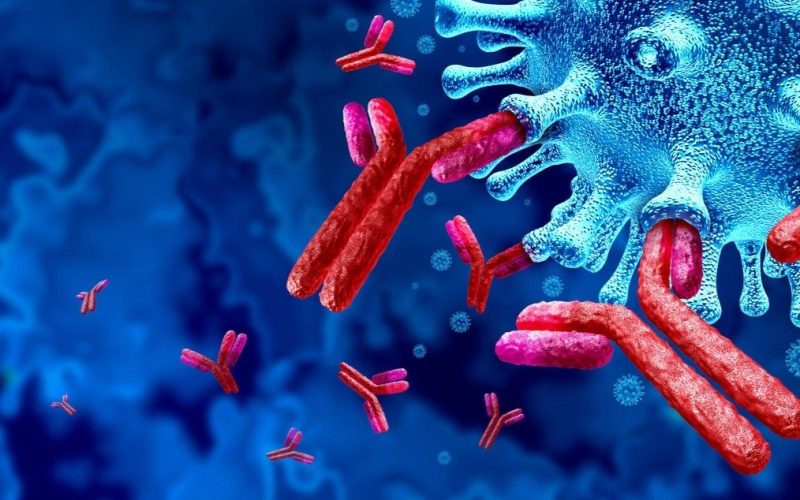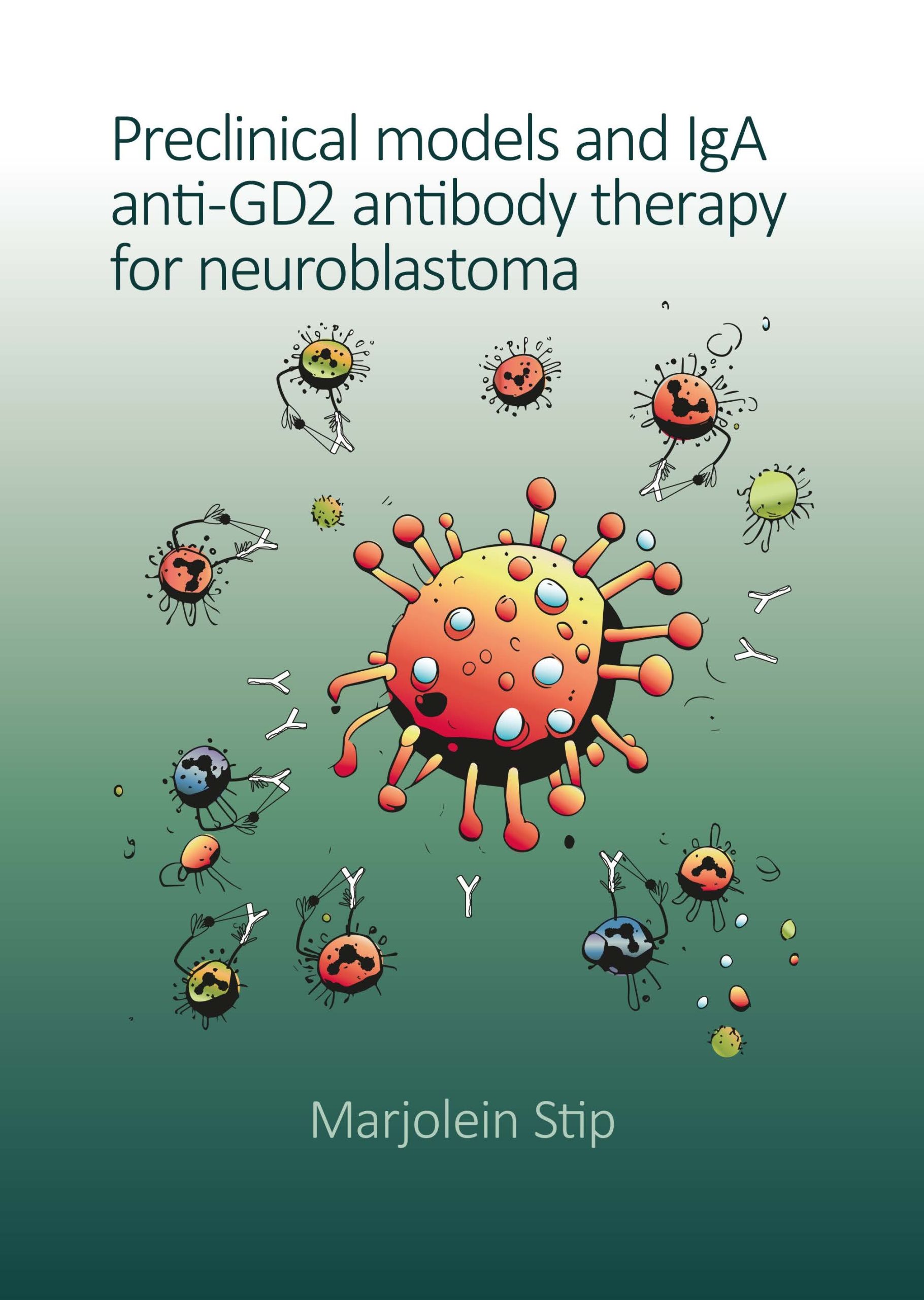PhD research by Marjolein Stip has shown that IgA-based antibody therapy may be a viable alternative for IgG anti-GD2 antibody therapy in the treatment of high-risk neuroblastoma. In vitro studies suggest that IgA-based therapy (in contrast to IgG-based antibodies) is not associated with neuropathic pain while maintaining clinical efficacy.
Each year, children in the Netherlands are diagnosed with the high-risk variant of neuroblastoma, a type of cancer that forms in nerve tissue. Symptoms may include bone pain, a lump in the abdomen, neck or chest, or a painless lump under the skin. It is the most common extracranial solid tumor in children, accounting for about 15 percent of all childhood cancer deaths. Whereas low-risk neuroblastoma in infants usually gives a good outcome with surgery or just observation, high-risk patients face a grim prognosis, with a 5-year survival of only 45 percent. Research into new treatment options is therefore of major importance. The PhD thesis of Marjolein Stip (Center for Translational Immunology, UMC Utrecht) discusses the potential of IgA anti-GD2 antibody therapy as a treatment for neuroblastoma.
Standard treatments for high-risk neuroblastoma include chemotherapy, surgery, stem cell transplantation and radiotherapy. Additionally, patients can be eligible for immunotherapy. Such immunotherapy usually consists of IgG antibodies against GD2 – a sugar-lipid molecule – expressed by neuroblastoma cells. When these antibodies bind to GD2 on neuroblastoma cells, they activate immune cells, most importantly natural killer (NK) cells, which then attack the tumor. However, therapy with anti-GD2 IgG antibodies can cause severe neuropathic pain, since it is also recognizing GD2 that is expressed on nerves. When anti-GD2 IgG antibodies bind to these nerves, they activate the complement system. This activation is responsible for the occurrence of severe pain which may lead to discontinuation of treatment. Preclinical studies in specifically for this purpose designed mouse models showed that IgA antibodies do not activate the complement system and therefore do not induce neuropathic pain. This could be a major improvement in patient care.
Next to that, laboratory experiments by Marjolein Stip and co-workers demonstrated that IgA antibodies effectively target neuroblastoma cells by activating myeloid cells, mostly neutrophils. Neutrophils are numerous and they appear to be ‘the kamikaze fighters of the immune system’. In both neuroblastoma cell lines and mouse models, IgA antibody therapy induced tumor cell death mediated by neutrophils. Another study in her thesis explored a combination therapy with agents that block the CD47-SIRPα pathway to enhance the efficacy of IgA immunotherapy. This CD47-SIRPα pathway inhibits the activation of myeloid cells, and is often hijacked by neuroblastoma to protect itself from destruction. Blocking the CD47-SIRPα axis appeared to support IgA antibody therapy by improving tumor cell killing capacity by neutrophils and macrophages.
Altogether, the PhD research of Marjolein Stip has demonstrated that IgA-based antibody therapy may be a viable alternative for anti-GD2 IgG antibody therapy in the treatment of patients with high-risk neuroblastoma.
Marjolein Stip, MSc (1994, Sliedrecht) defended her PhD thesis on June 12, 2024 at Utrecht University. The title of her thesis was “Preclinical models and IgA anti-GD2 antibodt therapy for neuroblastoma”. Supervisor was prof. Jeanette Leusen, PhD (Center for Translational Immunology, UMC Utrecht). Co-supervisor was Friederike Meyer-Wentrup, MD PhD (Princess Máxima Center for Pediatric Oncology, Utrecht). Marjolein works as a post-doc at the National Institute of Public Health and the Environment (RIVM) on broadly reactive immunity in infectious diseases.


